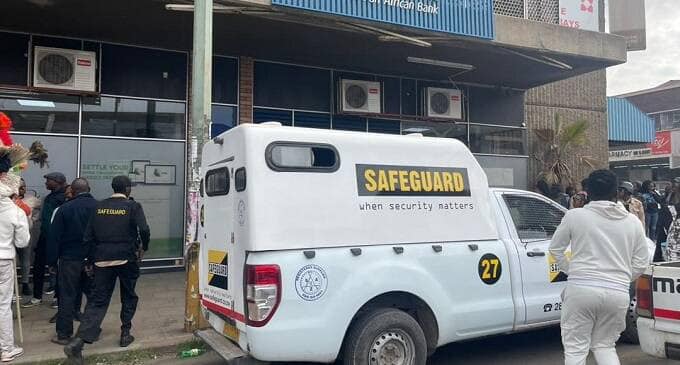Cash Relief Program Uplifts Plumtree Communities
Written by Skyz Metro FM on May 23, 2024
Charity Chikara
The Emergency Social Cash Transfer (ESCT) program, a collaboration between the government through the Ministry of Public Service, Labour and Social Welfare, UNICEF and other partners with financial backing from the Kreditanstalt fur Wielderaufbau (KFW) Bank is proving to be a lifeline for vulnerable households in Plumtree’s Mangwe District.
The program provides monthly cash transfers and child protection services, leading to improvements in food security, nutrition, and child health.
Margret Moyo, a 71-year-old widow caring for eight grandchildren, exemplifies the program’s impact. Previously reliant on handouts and credit, Moyo now uses the cash to feed her family and repair the previous flood damage to her home.
“I remember the inception of this wonderful program. We were called for meetings and informed that UNICEF and the government were going to address our plight after we did not receive enough rainfall.
As you can see, my garden there is dry, that is how my field is as well. This year, we were set up for failure by the dry spell. Fortunately, we started receiving the food aid. It delayed a for a month or 2, and then when the money came, I received USD$256, “she said
She went on to narrate how the cash relief program had saved them from hunger and enabled her to prepare for winter.
“That is what I am using to rebuild my hut over there. It crumbled down last year, but I did not have money to rebuild it. So, I also managed to buy uniforms for my 7 grandchildren and other basics for school. One thing for sure for the first time in a very long time, my grandkids have been going to bed with warm tummies, “she said
She went on to say that plans are in place for the money she would receive next.
“Only one of my grandchildren is not going to school. I will use the next money I receive on that and food, “she added delightfully.
Butholezwe Moyo, a self-employed father of four, faced similar struggles. With limited job opportunities, he found it difficult to provide for his children. However, ESCT has alleviated financial pressure, allowing him to focus on their education.
“I was depending on part-time piece jobs for a living. I would make plus or minus R500 per month, which I equivalent to about USD$25. That wasn’t enough for us. We have 4 children. This money has aided mostly on food, and I got to redirect some of my funds to other necessities.
We are very grateful for this intervention. I do not even know where would be, “said Moyo.
Also, speaking on the same issue, his wife Tjokula Moyo said she used to assist her husband financially through harvesting mopane worms. She shared her plight as mopane worms’ harvest were critically poor this year.
“I used to supplement our funds with harvesting and selling Amacimbi every year. By this time I would be buying my children warm clothes, uniforms, food and also assisting our parents. This year has been tough. The harshly dry weather has dried my source of income. I was left hopeless. This is why we are very grateful for this financial assistance we are receiving from the government and its partners. We ask that it continues,” she said.
Building on the success of the Harmonised Social Cash Transfer program, ESCT aims to expand its reach. It currently supports households led by the elderly, pregnant women, people with disabilities, and children in 33 districts.





 Skyz Metro FM
Skyz Metro FM